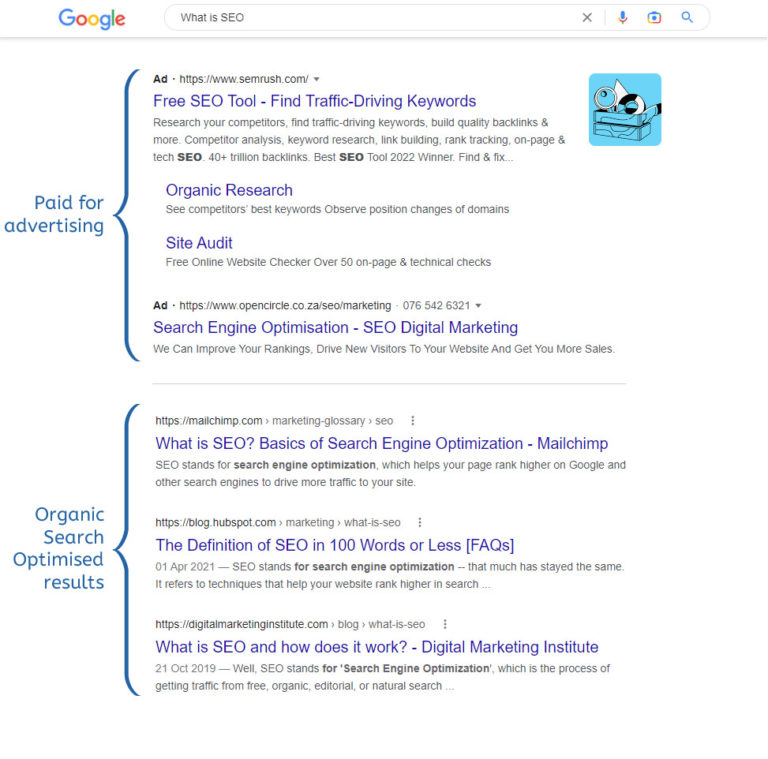
What is SEO? - Definition:
SEO is the process of affecting the visibility of a website or a web page in a web search engine’s unpaid results – often referred to as “natural,” “organic,” or “earned” results.
When you type a query into a search engine like Google, Bing, or Yahoo, the results that appear are not random. They are the product of a complex process known as Search Engine Optimization, or SEO.
Simply put, SEO is the practice of increasing the quantity and quality of traffic to your website through a search engine’s unpaid results. It’s the art and science of making your website more visible to people who are already looking for what you have to offer.
While you can pay to have your website appear at the top of search results (this is called Paid Search or SEM), a solid SEO strategy can earn you a coveted spot on the first page organically—for free.
The Three Pillars of SEO
1. On-Page SEO: Optimizing Your Content
This refers to all the optimization you do directly on your website pages. The goal is to make your content as relevant and valuable as possible for both search engines and human visitors.
- Keywords: While keyword stuffing is a thing of the past, strategically placing your main keyword (or “key phrase”) naturally in your content is still vital. Google’s algorithms are now sophisticated enough to understand synonyms and related concepts, so focus on writing for your audience first.
- Title Tags and Meta Descriptions: These are the clickable headlines and brief summaries that appear on the search results page. A well-written title tag that includes your keyword and a compelling meta description can significantly increase your click-through rate.
- Content Quality: The quality and depth of your content are paramount. A long, detailed article that thoroughly answers a user’s question will almost always outperform a short, thin page.
2. Off-Page SEO: Building Your Reputation
- Backlinks: A backlink is simply a link from another website to yours. When a reputable website links to your content, it acts as a “vote of confidence,” telling Google that your page is trustworthy and valuable. The quality of the backlink matters far more than the quantity.
- Social Signals: Shares, likes, and comments on social media can indirectly signal to search engines that your content is popular and engaging. While not a direct ranking factor, a strong social media presence can lead to more backlinks and more visibility.
3. Technical SEO: Making Your Site Search-Engine Friendly
- Mobile-Friendliness: With the majority of internet traffic coming from mobile devices, Google now prioritizes mobile-friendly websites in its rankings.
- Site Speed: A slow-loading website frustrates users and search engines alike. Optimizing images, leveraging browser caching, and choosing a reliable web host can significantly improve your speed.
- Site Structure: Your website’s navigation and internal linking structure should be logical and easy for both users and search engines to follow.
Why a Long-Term SEO Strategy is Non-Negotiable
SEO is not a one-time task; it’s a long-term strategy. Think of your website’s reputation like a fine wine—it gets more valuable with age, as long as you continue to nurture it with fresh, high-quality content. A domain that has existed for a long time and has a history of producing valuable content will always have a significant advantage.
You can learn the basics of SEO yourself, but mastering it is a full-time job. Search engine algorithms change constantly, and staying on top of the latest best practices requires a dedicated effort.
At Webworks, we don’t just build a website and walk away. We create a custom, SEO-friendly foundation for your business and provide the tools and guidance you need to grow your online presence. We set you up for success from day one, so you can focus on what you do best.










